Context matters: Community social cohesion and health behaviors in two South African areas
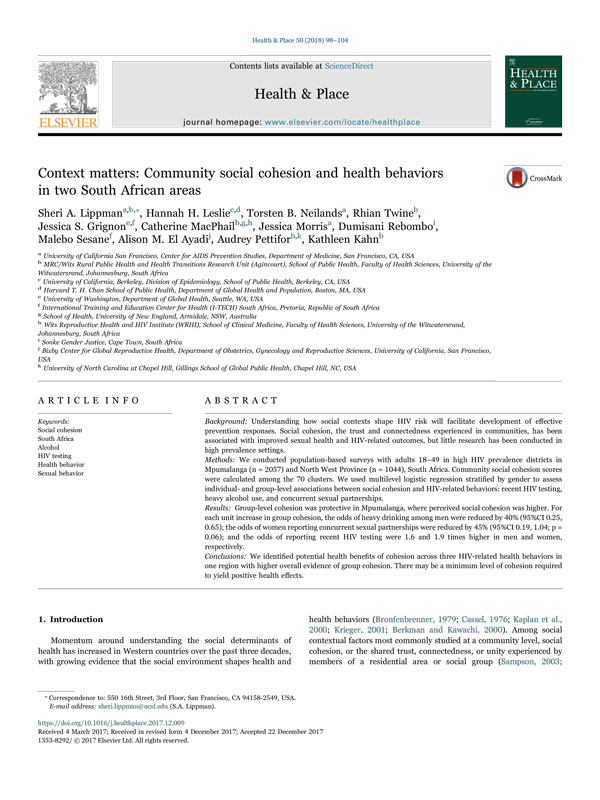
Background: Understanding how social contexts shape HIV risk will facilitate development of effective prevention responses. Social cohesion, the trust and connectedness experienced in communities, has been associated with improved sexual health and HIV-related outcomes, but little research has been conducted in high prevalence settings. Methods: We conducted population-based surveys with adults 18–49 in high HIV prevalence districts in Mpumalanga […]
On living as Zoe
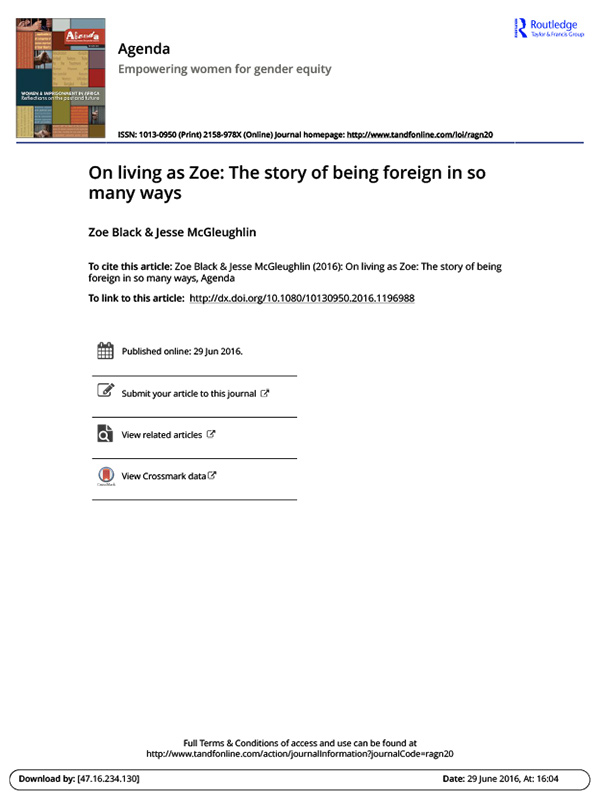
In this short interview Jesse McGleughlin interviews activist Zoe Black. They explore notions of belonging, home and ‘foreignness’ in relation to nationality, sexual orientation and occupation. Black’s experiences as “a black, migrant, woman sex worker who loves women” are explored through nuanced references to US slavery abolitionist Sojourner Truth.
A new generation of fathers
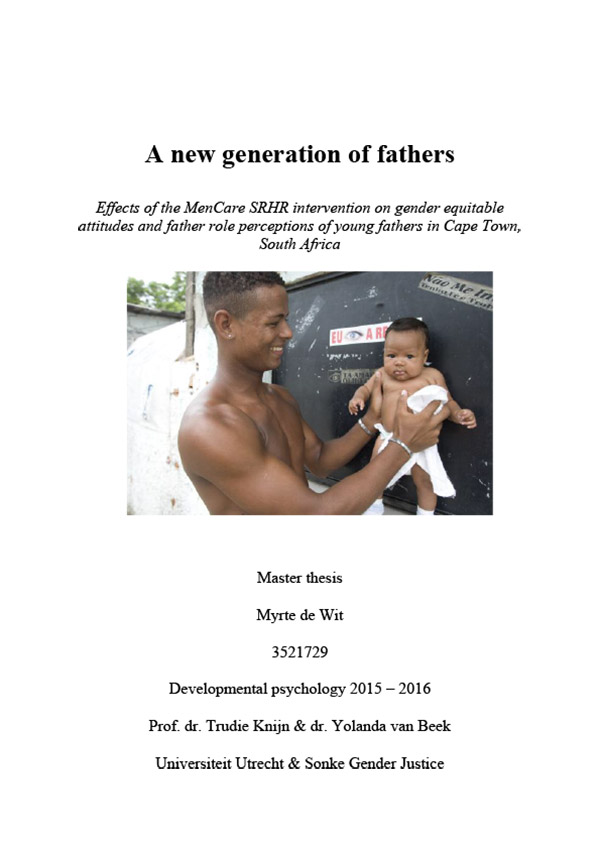
Gender inequality is seen as the driver of two major public health epidemics in South Africa, HIV/AIDS and gender-based violence. The Sexual and Reproductive Health and Rights (SRHR) program is a program for young men between 15 and 24 from impoverished communities around Cape Town, South Africa, in which traditional norms of manhood are questioned […]
Gender Equality in South Africa
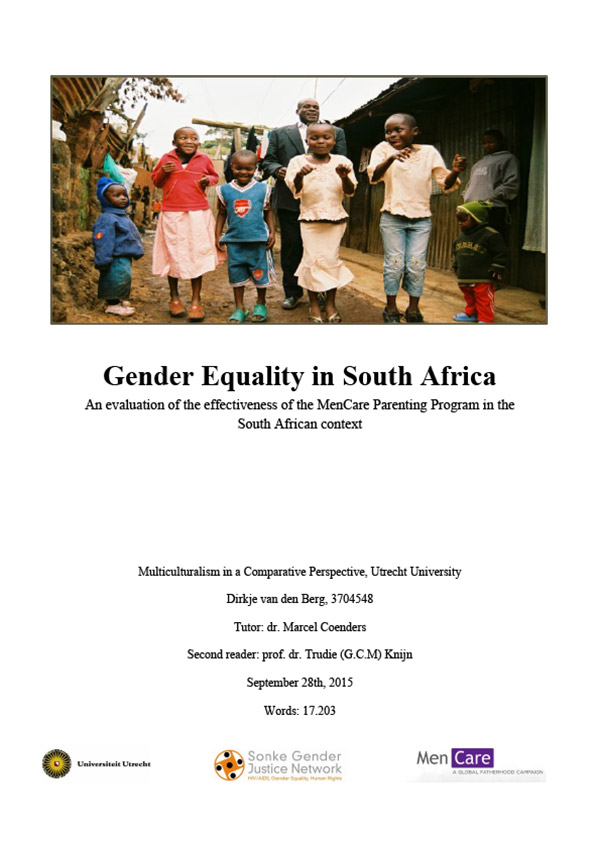
Gender equality is one of the main health issues in the world, referring to equal opportunities for both men and women to live a healthy life. Unfortunately, this equality does not always arise naturally. Therefore gender transformative interventions are designed to change gender roles and promote gender equality. The MenCare Parenting Program is one of […]
Changing gender attitudes to reduce risky sexual behaviour
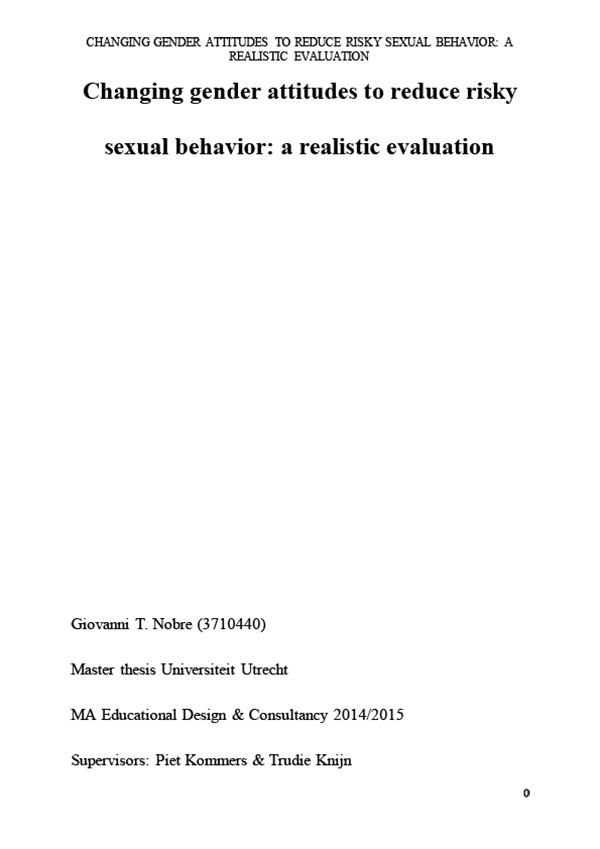
Objective. This realistic evaluation aims to study the interventions’ effect on young men between 15 and 24 years old and to extend the knowledge of program interventions concerned with reducing risky sexual behaviour while changing gender attitudes. Findings of the mixed method approach were synthesised to strengthen the program theory of this intervention. Methods. The […]
Working with men to prevent intimate partner violence in a conflict-affected setting
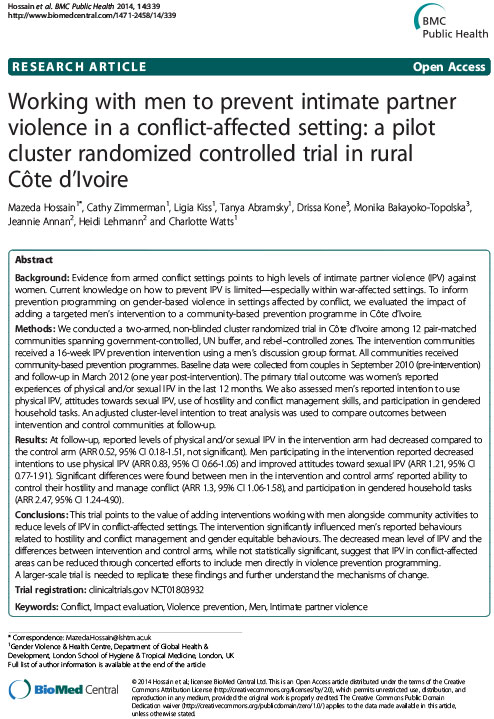
Evidence from armed conflict settings points to high levels of intimate partner violence (IPV) against women. Current knowledge on how to prevent IPV is limited – especially within war-affected settings. To inform prevention programming on gender-based violence in settings affected by conflict, we evaluated the impact of adding a targeted men’s intervention to a community-based prevention […]
Measuring the Economic Gain of Investing in Girls
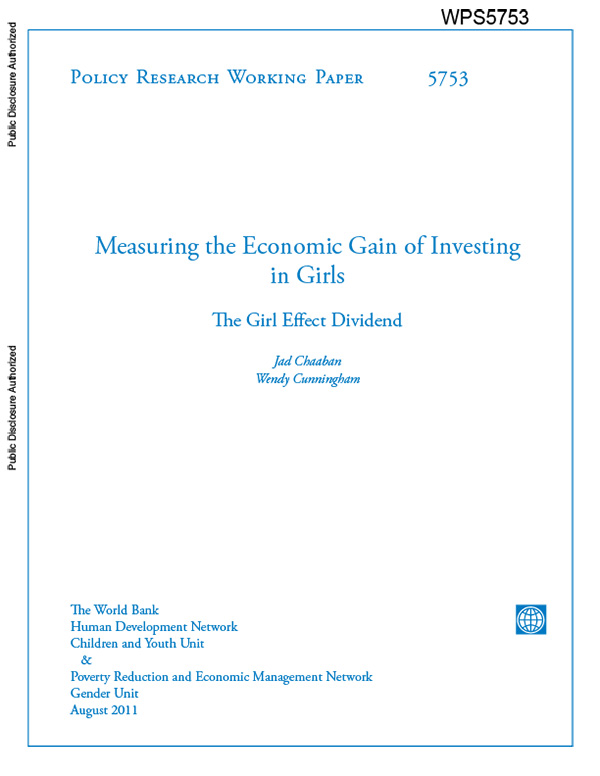
Although girls are approximately half the youth population in developing countries, they contribute less than their potential to the economy. The objective of this paper is to quantify the opportunity cost of girls’ exclusion from productive employment with the hope that stark figures will lead policymakers to reconsider the current underinvestment in girls. The paper explores the linkages […]

